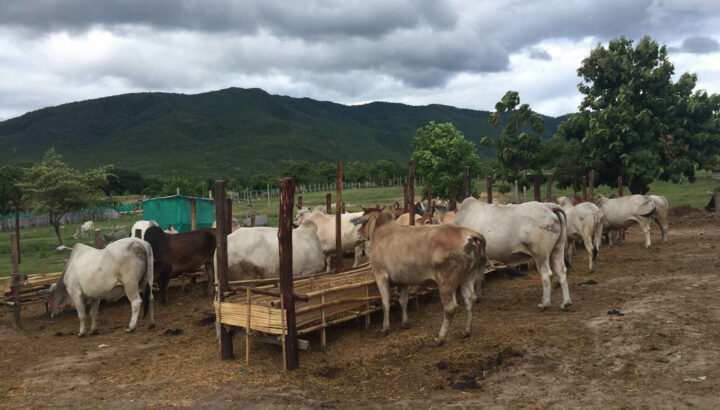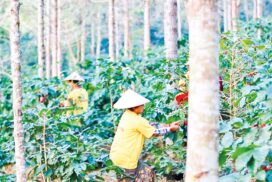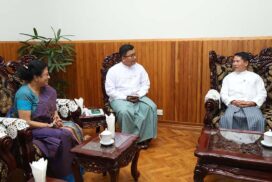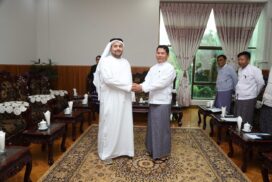A foot-and-mouth-disease (FMD) free zone, control zone and vaccination areas will be set up in Kutkai Township of Muse District, where animal disease surveillance station is also located, according to the Ministry of Agriculture, Livestock and Irrigation.
The officials from the Livestock Breeding and Veterinary Department (LBVD) under the Ministry of Agriculture, Livestock and Irrigation signed with China’s counterparts regarding cattle surveillance and health projects for live cattle export on 18 January 2021, intending to enhance livestock trading and ensure regular border trade through legitimate channel.
The LBVD has been implementing the establishment of FMD free zone, control zone and vaccination areas since 14 July 2020 to export live cattle to China through the land border.
The development of the FMD zones will help bring about the local breeders’ socio-economic development, market potentials for the livestock products and revenue for the country.
About 10,000 heads of cattle, owned by 150 companies, are stranded in Muse border as China stopped purchasing cattle. The labour wages and feedstuff cost burden them. It costs K400,000-600,000 to take care of 100 heads of cattle every day.
Some traders brought the cattle from Muse back to their home owing to the burden of high feedstuff cost and labour wages. Some intentionally stated that they would return to the original designated place but conduct illegal trade in border areas.
For legitimate trade, China permits live cattle import only after ensuring the cattle is free from 20 diseases including Foot and Mouth Disease, along with vaccination certificates, health certificates, and farming registration certificates. Therefore, the officials concerned from the two countries are negotiating this.
Earlier, 1,500-2,000 heads of cattle were daily traded through Muse border. Chinese New Year holidays, precautionary measures for the COVID-19, and other reasons contribute to the cattle trade suspension.
Additionally, Myanmar’s live cattle export relies heavily on the China market due to a fair price. However, Myanmar has other external markets such as Laos, Thailand, Malaysia and Bangladesh, he added.
The Ministry of Commerce grants a permit to each company for 100 cattle export, and the permit is valid for three months. The companies can be taken legal actions if they do not sell the cattle during the three months.
Live cattle export was allowed in late 2017, to eradicate illegal exports, creating more opportunities for breeders and promoting their interests.
Myanmar can yearly export around 500,000 heads of cattle beyond domestic consumption, the association stated. — NN/ GNLM














